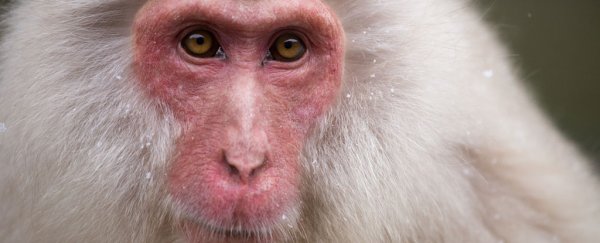Scientists in Japan have used cardiac muscle cells derived from the stem cells of a macaque to mend the damaged hearts of five other monkeys.
The technique shows that using donor stem cells might one day be a viable way to regenerate the organs of human heart attack patients – an approach that could dramatically reduce the time and expense of developing individualised stem cell treatments.
While using stem cell therapy to treat conditions like heart problems isn't new, the technique usually involves cultivating stem cells taken from the patient themselves – which can be very expensive.
Alternatively, stem cells can be harvested from human embryos, but that procedure is controversial, since the embryo is destroyed in the process.
If the new technique demonstrated by researchers at Shinshu University can be replicated in humans, we could avoid these difficulties in future stem cell therapies by enabling scientists to develop a resource of ready-made, donor-based treatments to help any number of patients.
"They strengthen the case that a bank of pre-prepared matched [cells] could be used to treat patients, without relying on the long process of reprogramming and differentiating the patient's own cells," cardiac researcher Sian Harding from Imperial College London in the UK, who wasn't involved with the study, told Ian Sample at The Guardian.
In the study, the researchers generated induced pluripotent stem cells (reprogrammed cells) taken from the skin cells of a donor macaque. They then injected these cells into damaged areas in the hearts of five recipient macaques that had each experienced an induced heart attack.
Of course, one of the major risks of using donor cells is the possibility of rejection by the recipient – if you're using individualised stem cells (cells taken from the patients themselves) there's no chance of rejection of foreign cells via an immune response.
To address the risk of rejection, the researchers here selected animals that were as close to a genetic match as possible in terms of a shared immune system protein called major histocompatibility complex (MHC).
"In addition to daily treatments of the immunosuppressant drugs methylprednisolone and tacrolimus, we made sure the surface protein MHC, which is used by the immune system to recognise foreign cells, was carefully matched on the donor and recipients' cells," one of the researchers, Yuji Shiba, told Maarten Rikken at ResearchGate.
After monitoring the recipient macaques for 12 weeks, there was no sign of rejection, and the team observed that the transplanted cells had improved the damaged hearts' ability to contract.
That said, there was one notable side effect. The recipient monkeys showed an increased incidence of irregular heartbeats – a condition known as arrhythmia – but the team says they're confident that the condition didn't pose any serious health risks to the animals before they were euthanised at the conclusion of the trial.
"Ventricular arrhythmia was induced by the transplantation, typically within the first four weeks," Shiba told ResearchGate.
"However, this post-transplant arrhythmia seems to be transient and non-lethal. All five recipients of [the stem cells] survived without any abnormal behaviour for 12 weeks, even during the arrhythmia. So I think we can manage this side effect in clinic."
While it's an exciting result that demonstrates the potential for donor-based stem cell transplants in treating heart damage in the future, we can't get too excited just yet.
The researchers acknowledge that their small study only involved five recipient animals, so larger trials with more animals are needed to replicate the results.
And while the treatment was successful in this case, the monkeys that received it were only observed for three months afterwards, meaning we don't know the longer-term prospects for this experimental therapy.
But despite the limitations, it's still a promising new lead for stem cell research – especially for heart attack patients and their families, who may not have many other alternatives.
"Currently, the only long-term option for these patients is heart transplantation," cardiac researcher Sam Boateng from Reading University in the UK told The Guardian, "but there are not enough donors to meet the current demand."
The findings are reported in Nature.
